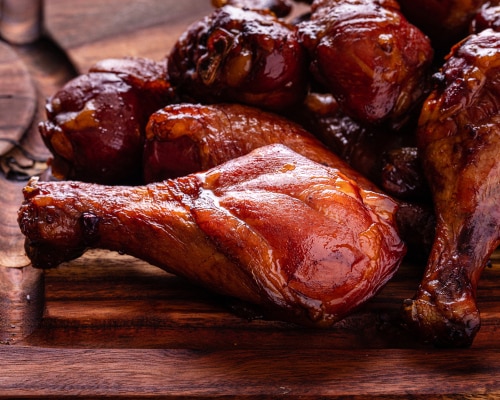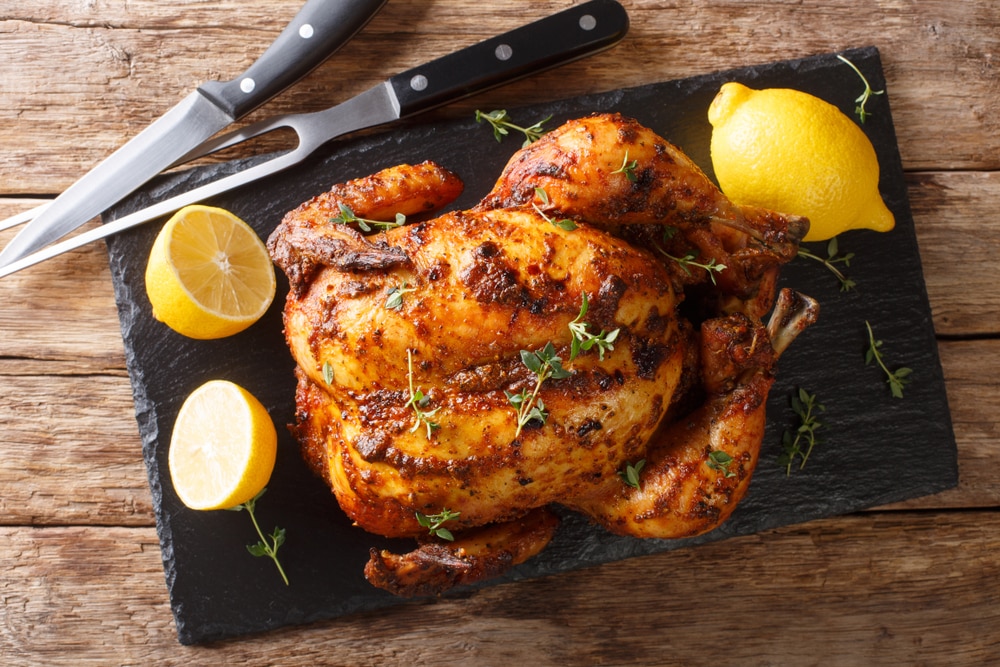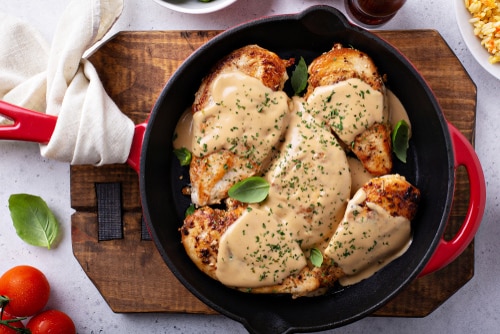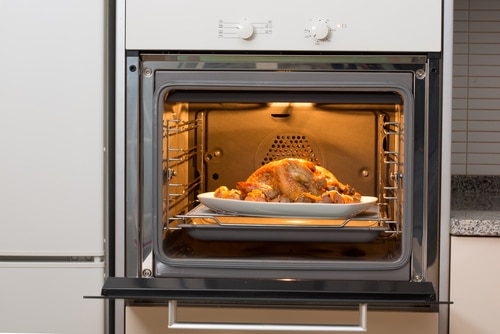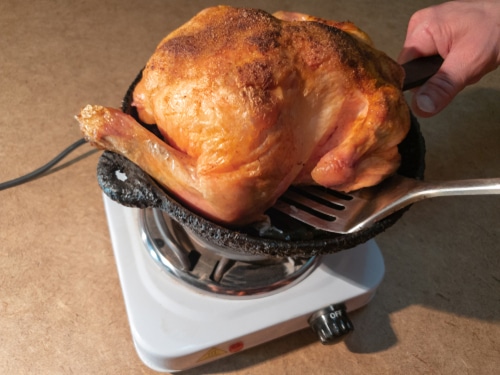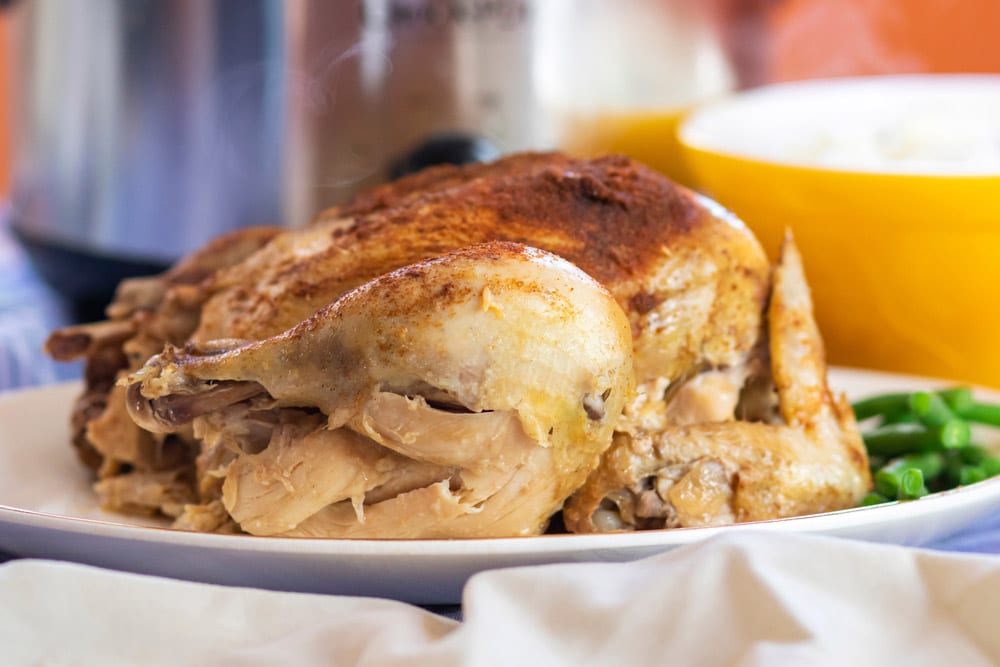
Chicken is one of the most delicious meals one can enjoy, and it wouldn’t be amiss to say that it’s a very popular dish. However, people often end up having to store leftover chicken. Then, if and when you reheat it, it may taste dreadful.
It doesn’t matter how delicious and succulent the chicken was the evening before—reheating will often result in this rather strange taste. Why? Is it safe to eat?
If you’re worried about the flavor and want to know why leftover chicken tastes awful, we’re here with the answers! We’ll also discuss how to reduce those bad flavors.
Why Does Leftover Chicken Taste Bad
What Causes the Bad Taste in Chicken Leftovers?
To begin with, the distinctive taste of leftover chicken isn’t necessarily related to chicken being spoiled, but to fatty acid changes. This phenomenon is known as warmed-over flavor, and it’s characterized by a stale and rancid savor, along with a cardboard-like texture.
According to food experts, this odd flavor develops when the chicken has been in the refrigerator for a minimum of 24 hours and will become more noticeable when the chicken is reheated.
The primary reason behind the development of the awful taste is oxygen exposure, which results in the decomposition of the chicken’s polyunsaturated fatty acids (PUFA) into chemicals. In simpler words, taste deterioration is a result of multiple chemical reactions.
How Long Does Chicken Last in the Refrigerator?
Before we begin to describe ways to keep your chicken tasty, let’s discuss how long chicken lasts in the fridge.
You obviously want to put it there to keep it lower than the dangerous heat range of 140°F. At that heat, bacteria will grow. Chicken is particularly dangerous, being a source of salmonella poisoning, so keep the poultry cool.
So, how long does it last in the fridge? You can keep cooked chicken there for 4 days, and raw chicken for 2. If it’s been in the fridge longer than that, chuck it out rather than risking becoming ill.
Ways to Avoid Bad Taste in Leftover Chicken
You may not be aware of this, but chicken has a higher percentage of polyunsaturated fatty acids compared to lamb or beef. This makes it more vulnerable to the development of the warmed-over flavor. The same goes for fish, which also has a high fatty acid content.
In order to help you prevent taste deterioration, follow our hints and tips. They are very simple, easy steps to take, but will make a tremendous difference to the taste of your leftover chicken.
- Don’t Overcook Your Chicken
The very first step in keeping delicious, moist flavors going is not to overcook your chicken in the first place. Cook on a medium heat and check with a meat thermometer to ensure the inside of the poultry is cooked.
This way, you’ll cook it safely and thoroughly, without it overdrying, and make it possible to reheat the next day with little chance of bad flavors ruining the meal.
- Sauces or Gravies
Many people think that they should not use sauces, gravies, or curries with chicken in order to prevent the chicken from developing a bad flavor, but it’s actually the opposite. Sauce or gravy can function as a barrier to oxygen and air.
This, in turn, prevents the fatty acids going rancid. In addition to this, you should use oregano and rosemary in any sauce or gravy, because these herbs are antioxidants that help avert the oxidation of PUFAs.
You can also brush the chicken with olive oil or marinade. Both help to keep it moist and to give it extra flavor and crispiness. So, if you’re planning on storing cooked chicken for later use, prepare a sauce and layer it all over the chicken to make sure it remains tasty.
- Prepare Well
It’s important to do the right preparation. You want to rapidly get the chicken as hot as possible. So, take the chicken out of the fridge a couple of hours before you wish to reheat it, being sure to cover it so flies can’t get to it.
Ensure that it’s at room temperature before you reheat it, so it will heat faster once you start cooking. Then pour citric acid and a little chicken broth over the top.
Although you won’t change the flavor, you’ll prevent the chicken from drying out, helping you keep the fresh taste.
- Reheating Method
Whenever it comes down to reheating the leftover chicken, it is common for people to use a microwave oven. However, a microwave oven upsets the water molecules in the chicken and dries it out.
We, therefore, don’t recommend reheating your chicken in a microwave, because it will result in a rubbery texture. In simple words, reheating the chicken in a microwave oven will dehydrate the chicken, and you don’t want to chew on rubbery poultry instead of tender, succulent meat.
The taste will improve if you use the same heat source for reheating the chicken as you used for cooking it. For instance, if you roasted the chicken, you should put it in the oven for reheating.
Or, in the case of fried chicken, you should put it in the fryer for one to two minutes and reheat it that way. It not only results in a better flavor with improved moisture, but you can get the skin crispy again. Make sure your oven is at a medium heat—not higher than 350 – 370°F.
Your best option remains placing it in some chicken broth or water, to absorb as much water as possible, but your chicken skin might not re-crisp as crunchily as previously. A further step is to put a lid on the roasting dish, so that you can prevent it drying out further.
What’s more, make sure you keep your chicken as whole as possible. Cutting it up into pieces simply leads to greater chance of it drying out.
If you do have chicken pieces to reheat, you could easily make a chicken curry out of them to enhance the flavors and keep your moisture. You could add curry, cumin, coriander, and some coconut milk, along with a dash of lime or lemon grass.
- Citric Acid
If your recipe allows, we suggest that you add citric acid to the chicken to make sure it doesn’t acquire a bad taste. Drizzle some lemon juice or vinegar over the chicken and cover it for a few minutes before cooking.
The citric acid in the lemon juice or vinegar tends to overpower all other flavors and tastes. In particular, you should opt for fresh lemon or vinegar rather than regular white vinegar.
- Proper Storage
The last tip on avoiding bad taste is to ensure proper storage. As already mentioned, a bad taste develops when the chicken is exposed to air. For this reason, it is best that you store your chicken in an airtight container. Alternatively, encase it in aluminum foil or plastic wrap.
The Bottom Line
Note that if you have refrigerated chicken for more than a day, flavor change is a possibility. Also, you should look for other signs of spoiling, such as green-grey or grey coloring.
A bad smell could be the result of spoiling, and color changes will easily confirm this issue. However, if you refrigerated the chicken the day before and there are no color changes, it’s safe to be reheated and consumed. Enjoy!
